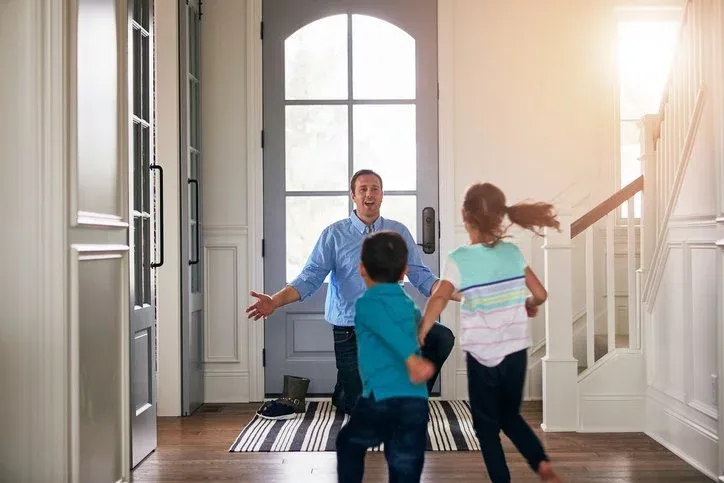
Noncustodial parents in Rhode Island may feel confused about their rights and responsibilities when it comes to childcare and parenting. When relationships end and children are involved, it is especially painful for the kids. It’s important to structure a compassionate custody arrangement for parents and children alike. However, the court’s top priority will be to make sure that provisions agreed upon are primarily in the best interests of the children.
Sometimes separating or divorcing parents can come to a workable agreement on their own. If parents cannot reach a workable agreement, the Rhode Island Family Court must make the decisions for the family. In either case, a judge’s approval is necessary to create an official custody order.
The custody order will assign the legal and physical custody of the child or children. The sole custodial parent has physical custody of the children. He or she is responsible for providing the child with shelter, food, clothing, schooling, and healthcare. The parent with sole custody makes all the decisions regarding the child’s upbringing and welfare, including the choice of religion.
Joint Custody Responsibilities in Rhode Island
In cases of joint custody, the parents share the legal and physical custody, as well as all child-rearing responsibilities equally. Both parents have a say in how they raise their children. As a result, parenting time is split between the two homes.
The parent who does not have primary custody usually will have visitation rights for one weekday night per week. This “noncustodial parent,” will also be allowed two full weekends of parenting time per month. If the court decides to deviate from this established parenting time, it can only be to add additional parenting time. However, a judge may revoke visitation rights of the noncustodial parent in some cases. For example, visitation may be halted if the family court judge believes the noncustodial parent is unfit to provide adequate childcare.
Split custody is when one child permanently lives with one parent, and another child or children lives with the other parent. This situation often arises when the children have a personal preference of which parent they prefer to live with.
Family court does consider a child’s preference if the child is old enough to make an informed decision. Although it isn’t the sole determining factor, a child’s choice of the primary custodian is an important factor that influences the final decision.
Who Determines Noncustodial Parent Child Support Payments in Rhode Island?
The Rhode Island Family Court determines the amount of child support owed. Officials review the Rhode Island Child Support Schedule every four years and update it as necessary. Their website offers the Family Court Child Support Guideline Worksheet to help families determine the proper amount of child support. Either parent can and should report all problems, concerns, and inquiries related to child support to the Office of Child Support Services. They’re a division that falls under the Department of Human Services.
The different services provided by this entity include collection and allocation of payment, support order management, paternity tests, and more. For any of the aforementioned services rendered, the noncustodial parents may incur a non-refundable $20 charge. However, some services are not available to either parent from the Office of Child Support Services. These include help with legal representation, assistance with alimony, visitation inquiries, custody-related problems, and the employing of a private auditor to determine if the non-custodial parent is neglecting to report all earnings.
If a Parent Wishes to Relocate, What’s Next?
When a parent is planning on moving, there can be dramatic changes to the custody arrangement and visitation schedules. For example, if the custodial parent is intending on relocating out-of-state, he or she can lose custody of the child/children altogether. The moving parent is required to provide fair notice, in advance. The non-moving parent has the right to submit an objection with the Rhode Island Family Court in efforts to stop the move. The court judge would schedule a hearing to understand if relocating would be best for the child’s wellbeing.
There are many variables that a court will examine when concluding whether or not moving is the best decision for the child. These include:
- The parent’s motives for leaving
- The child’s bond with each parent, brothers/sisters, and local family presence
- The emotional impact and burden of transferring schools
- The child’s inclination, considering how old the child is and his/her maturity
- The non-moving parent’s motives for protesting the relocation
- How the move may help the child monetarily, or provide for a better lifestyle
- Any additional determinant related to the child’s livelihood
Help for Noncustodial Parents in Rhode Island
Are you struggling with a post-divorce custody arrangement? Contact Susan T. Perkins, Attorney at Law. Call 401-Perkins for a free consultation to learn more about the rights of noncustodial parents. Rhode Island Child Custody Lawyer Susan T. Perkins is a family law expert who can help who will help you structure a fair custody arrangement to help preserve your relationship with your children.




